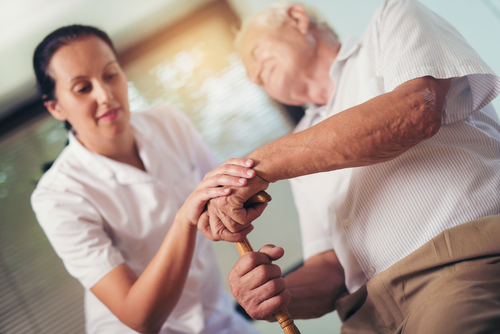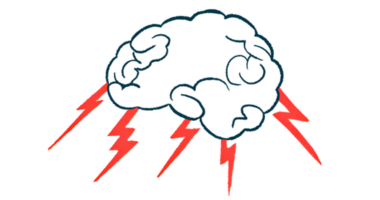Most Parkinson’s Patients Show Non-movement Symptoms Like Depression, Sleep Problems, Survey Finds

Nearly all Parkinson’s disease patients experience non-movement symptoms, such as sleep disturbances or depression, which affect their quality of life as much as movement-related symptoms, according to an online survey of 700 participants, nearly 600 of whom completed it in full.
Patients’ caregivers are those most likely to detect non-movement manifestations of the disease.
These are the two main conclusion of the online survey, conducted by the Parkinson & Movement Disorder Alliance (PMDAlliance) with the support of Acadia Pharmaceuticals, as part of Parkinson’s Disease Awareness Month.
Of the survey’s respondents, 286 were Parkinson’s patients; 377 were care partners; 10 were noncare partners or family members of Parkinson’s patients; and 27 were categorized as “others.”
The survey, conducted online with members of the PMDAlliance from March 19-31, 2018, revealed that 90% of Parkinson’s patients show non-movement symptoms, manifested as sleep problems (84%), cognitive challenges (75%), anxiety (65%), depression (55%), hallucinations (41%), and delusions (24%).
The negative impact of non-movement symptoms on quality of life was recognized by 84% of the respondents, with nearly half of the patients (49%) finding coping with these symptoms even more challenging that Parkinson’s-related movement symptoms.
The non-movement side of the disease has a generally negative impact on the lives of patients, affecting their social activities with friends and family (70%), intimacy with their partner (68%), and with daily activities, such as household chores (68%) and running errands (67%).
“This survey clearly shows that non-movement symptoms of Parkinson’s disease make it difficult for people with Parkinson’s and their care partners to participate in activities most of us take for granted — running errands, going to the movies, eating out, or simply cooking and cleaning,” Sarah Jones, the CEO of PMDAlliance, said in a press release.
“We urge the entire Parkinson’s community — from the people with Parkinson’s and care partners, to healthcare professionals and support groups — to continue initiating conversations about Parkinson’s symptoms, especially the non-movement ones that greatly impact day-to-day living,” Jones said.
Despite its negative impact on quality of life, care partners detected the non-movement side of Parkinson’s two to four times more than patients themselves.
Hallucinations were observed by 51% of care partners and 23% of patients, and delusions were spotted by 32% of caregivers compared to 8% of patients.
These results both highlight and correlate with literature reporting that non-movement symptoms, like hallucinations and delusions, are often not reported to clinicians — only 10-20% of the cases are actually reported. This may be due to embarrassment or a misunderstanding that the symptoms are associated with the disease, since most of the time devoted to a patient’s visit with a doctor is generally focused on motor symptoms.
Other non-motor symptoms, such as cognitive challenges, anxiety, and depression were more easily detected by caregivers than patients.
“Parkinson’s disease changes how both people with PD [Parkinson’s disease] and care partners think about their future and cope with day-to-day living,” Jones said.
“Care partners are particularly attuned to how the disease is progressing in their loved one, which is why PMDAlliance added new educational resources to our website about the onset and impact of non-movement symptoms of PD,” she said.
“We want to encourage people to report symptoms to their healthcare providers, seek support, and participate in the community. This spring, we’re also hosting several Learn, Live, Connect educational conferences across the country where people can learn more about Parkinson’s disease and its many symptoms,” Jones added.
Doral Fredericks, PharmD (doctor of pharmacy), vice president of medical affairs at Acadia Pharmaceuticals, said Acadia is “honored to partner with PMDAlliance to highlight the impact of non-movement symptoms on both people with Parkinson’s and their care partners.
“We encourage people with Parkinson’s and caregivers to join the effort to raise awareness about this important aspect of Parkinson’s disease,” Fredericks added.






